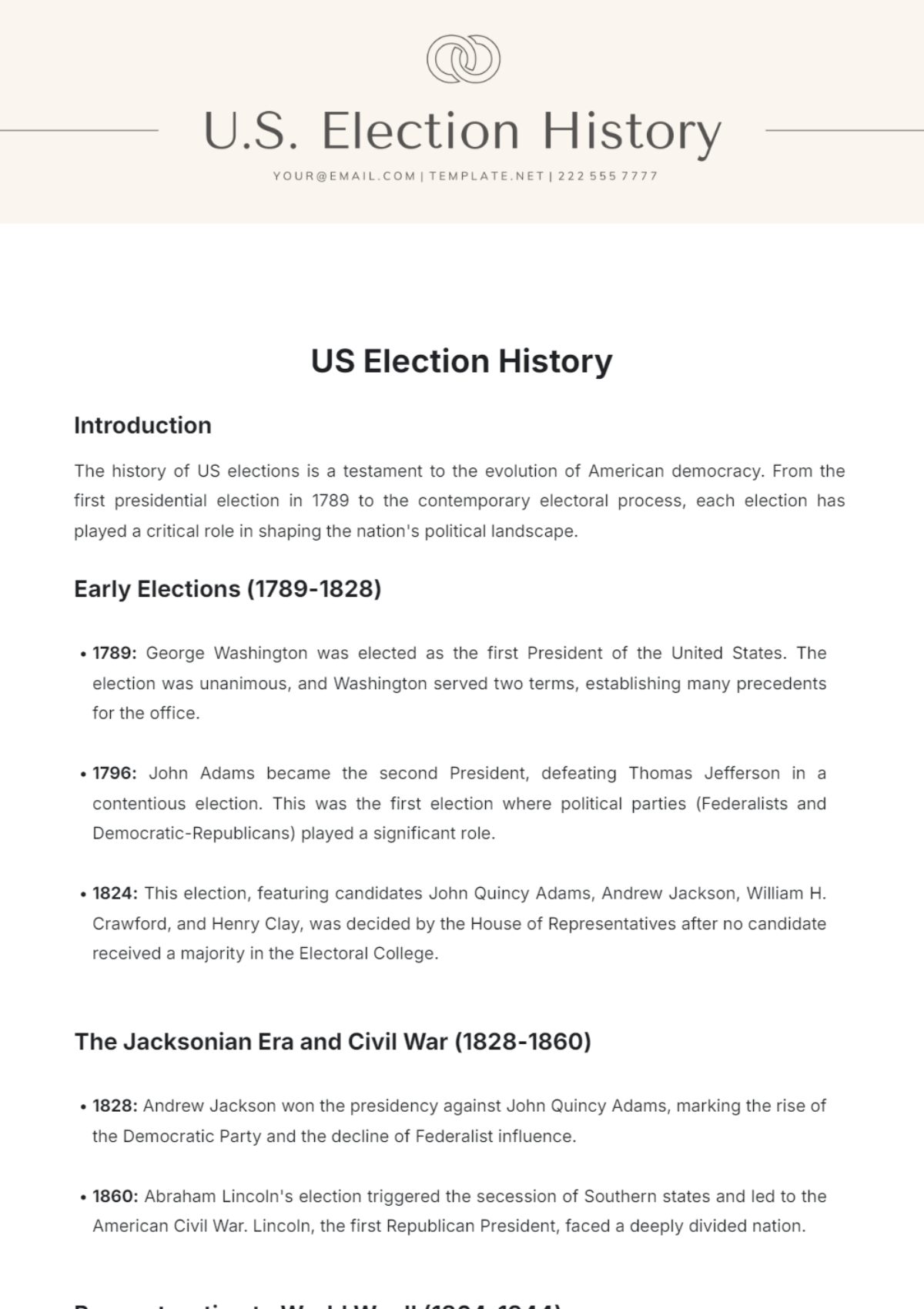Free US Election History

Introduction
The history of US elections is a testament to the evolution of American democracy. From the first presidential election in 1789 to the contemporary electoral process, each election has played a critical role in shaping the nation's political landscape.
Early Elections (1789-1828)
1789: George Washington was elected as the first President of the United States. The election was unanimous, and Washington served two terms, establishing many precedents for the office.
1796: John Adams became the second President, defeating Thomas Jefferson in a contentious election. This was the first election where political parties (Federalists and Democratic-Republicans) played a significant role.
1824: This election, featuring candidates John Quincy Adams, Andrew Jackson, William H. Crawford, and Henry Clay, was decided by the House of Representatives after no candidate received a majority in the Electoral College.
The Jacksonian Era and Civil War (1828-1860)
1828: Andrew Jackson won the presidency against John Quincy Adams, marking the rise of the Democratic Party and the decline of Federalist influence.
1860: Abraham Lincoln's election triggered the secession of Southern states and led to the American Civil War. Lincoln, the first Republican President, faced a deeply divided nation.
Reconstruction to World War II (1864-1944)
1876: The contested election between Rutherford B. Hayes and Samuel Tilden was resolved by a special commission, leading to the end of Reconstruction in the South.
1932: Franklin D. Roosevelt won a landslide victory over Herbert Hoover during the Great Depression, leading to the New Deal era and significant changes in American government and politics.
Post-War Era to Modern Elections (1948-Present)
1960: John F. Kennedy narrowly defeated Richard Nixon in a historic election marked by the first televised presidential debates, which highlighted the growing importance of media in elections.
2000: The election between George W. Bush and Al Gore was one of the closest in US history, with the outcome decided by a Supreme Court decision on the Florida recount.
2008: Barack Obama was elected as the first African American President, marking a significant milestone in US history.
Recent Elections and Current Trends
2016: Donald J. Trump won the presidency against Hillary Clinton in a surprising outcome that reflected deep political divisions within the country.
2020: Joe Biden defeated incumbent President Donald Trump in a highly contentious election marked by significant voter turnout and debates over mail-in voting and election integrity.
Conclusion
The history of US elections reflects the dynamic and evolving nature of American democracy. Each election has contributed to the shaping of the nation’s political, social, and economic landscape. As we look forward to future elections, understanding this history helps us appreciate the ongoing efforts to build a more inclusive and representative democracy.
- 100% Customizable, free editor
- Access 1 Million+ Templates, photo’s & graphics
- Download or share as a template
- Click and replace photos, graphics, text, backgrounds
- Resize, crop, AI write & more
- Access advanced editor
Explore the rich history of US elections with the editable and customizable US Election History Template from Template.net. This comprehensive template is perfect for educational purposes and research, and it’s fully editable in our AI Editor tool. Customize timelines, key events, and figures effortlessly to create an informative and engaging presentation on the evolution of US elections.





























